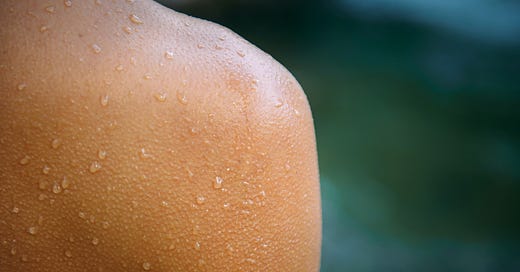So It Turns out Your Body is Alive: The Interoceptive Paradigm, Polyvagal Theory, and Manual Therapy
A Guest Post by Dr. Jeff Rockwell DC MA DOMP: Developer of Polyvagal Touch
Anyone who happens to be reading this is traveling on the surface of a vast terrestrial globe that is spinning at 1,000 miles per hour and rocketing through space at 18.5 miles per second. Although we are unaware of this, and it has always been thus, modern life is now moving faster than our nervous systems were designed for. You can look around, and see that people are anxious, depressed, and in pain. Relationships and institutions are crumbling. Social tapestries around the world are fraying at the edges, if not being downright torn apart.
To handle this turbulence, we need to shift our attention from the noisy 'world we're in' to the potential peace of the 'world within'—to flexible autonomic nervous systems designed to regulate and co-regulate themselves. If we find ourselves in outer storms, we need, more than ever, the capacity to access an inner harbour of wellbeing.
In this article, I am going to lay out for you a model of approaching our own nervous systems through touch, based on my fifty years of work at the intersection of manual therapy and neuroscience. I'm going to share with you how touch provides a vector for entering into dialogue with our own ANS, another portal to self-regulation and understanding.
I believe that this is a necessary component of what is required to respond accurately to “what is” in our outer and inner worlds and to feel safe to connect with both of those neurological domains. And we need to do this to become the best version of ourselves, to thrive, and to find purpose in making a world that works for everyone. It is my contention that many of the crises facing the planet and its inhabitants today are not solved with more answers, but with more awareness.
Enter the Interoceptive Paradigm: the work of getting as many people as possible back to their neurobiological roots, digging deep into somatic terrains, and feeling and sensing their way toward becoming better mammals— human animals capable of “playing well with others.”
Keep reading with a 7-day free trial
Subscribe to The Hearth Science Substack to keep reading this post and get 7 days of free access to the full post archives.






